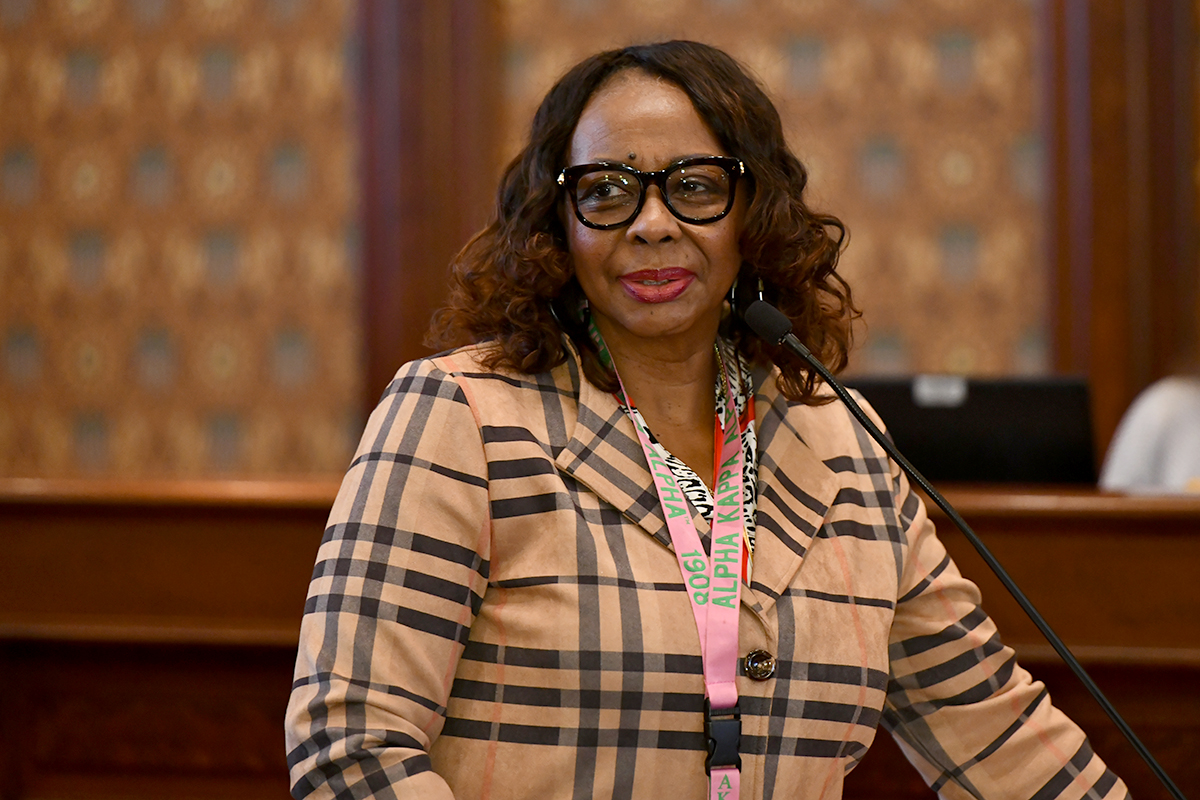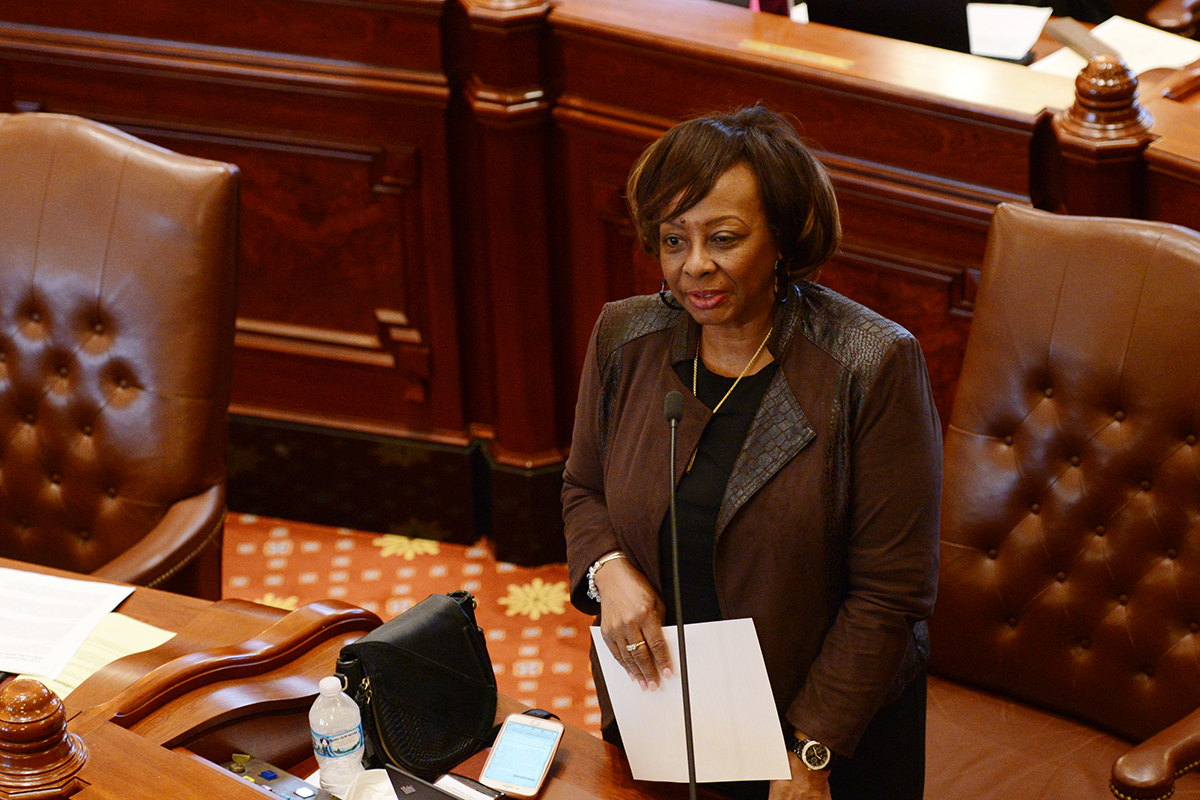Hunter encourages Chicago’s young adults to take advantage of youth employment program
- Details
- Category: News

CHICAGO - As a way to help Chicago’s young adults weather the economic and social challenges caused the COVID-19 pandemic, State Senator Mattie Hunter (D-Chicago) is encouraging youth aged 16-24 to participate in the Illinois Department of Human Services’ COVID-19 Summer Youth Employment Program.
“The youth I represent have been faced with a great deal of adversity over the past few months, especially in our underserved neighborhoods. For some, it can feel overwhelming,” Hunter said. “This program offers a productive way to combat financial uncertainty while building the foundation for a great career.”
The program offers paid career development and work experience to young adults by partnering them with local employers in need of summer workers.
Providers under the program serving Hunter’s district are listed below.
|
Provider Name |
Contact |
|
Phone Number |
|
Boys & Girls Clubs Chicago |
Fannieleah Brown |
|
312-235-8000 |
|
Centers for New Horizons |
Edwin Galletti |
|
773-373-5700 |
|
Chicago Area Project |
Howard Lathan |
|
312-588-3834 |
|
Jewish Child Family Services |
Nanette Cohen |
|
312-673-2700 |
|
SGA Youth Family Services |
Jesenia Latorre |
|
312-663-0305 |
Participants in this program will be placed in age- and experience-appropriate opportunities in one of three categories: work-based learning, career development experience, or pre-apprenticeship programs that target a registered or non-registered apprenticeship.
The state has dedicated $9.3 million to the program to employ low-income youth living in areas most affected by the pandemic.
“Young people should be able to see a promising future for themselves, which is why I encourage all eligible youth in Chicago to take advantage of this opportunity to enhance their job prospects,” Hunter said.
Opportunities are available through the end of August.
###
Hunter appointed to Illinois Commission to End Hunger
- Details
- Category: News

CHICAGO – To help ensure every Illinois family has access to fresh, healthy food, State Senator Mattie Hunter (D-Chicago) has been appointed to the Illinois Commission to End Hunger.
“My career in public service has been dedicated to helping families lead safer and healthier lives, which is why I’m honored to join the Illinois Commission to End Hunger,” Hunter said. “I look forward to working with my colleagues on the commission to identify and execute solutions to address the systemic factors that give rise to poverty and child hunger.”
Launched in 2010, the Illinois Commission to End Hunger is a public-private partnership comprised of stakeholders from across the state tasked with developing a continuing plan of action to eradicate food insecurity.
Overall, 10.7% of Illinoisans experience food insecurity, including more than 15 percent of all children in the state.
The commission is set to release the Illinois Roadmap to End Hunger later this year, which will outline recommendations for both short-term recovery and long-term solutions.
The commission is currently holding regional listening sessions to gather input from local leaders, advocates, and families around the state. The remaining listening sessions are:
• Northern Illinois – Wednesday, July 15, 12:00 p.m.-1:00 p.m.
• Southern Illinois – Thursday, July 16, 1:00 p.m.-2:00 p.m.
Registration for the listening sessions is available here.
New Hunter law expands access to health care for low-income communities
- Details
- Category: News
CHICAGO – State Senator Mattie Hunter’s (D-Chicago) legislation aimed at improving access to health care in communities across Illinois that have been disproportionately affected by the COVID-19 pandemic was signed into law yesterday by Governor JB Pritzker.
“In Illinois, you deserve access to high-quality health care and treatment, no matter your economic status, your ZIP code or what you look like,” Hunter said. “This law extends that promise to many of our neighbors who have been left out, often due to long-standing racial health and economic disparities.”
Senate Bill 1864, known as the Health Care Affordability Act, eliminates or loosens requirements on who can access Medicaid by:
- Providing HFS with the authority to accept an applicant’s or recipient’s attestation of income, incurred medical expenses, residency and insured status when electronic verification is not available;
- Eliminating resource tests for some eligibility determinations;
- Suspending redeterminations;
- Suspending changes that would adversely affect an applicant’s or recipient’s eligibility;
- Allowing phone or verbal approval by an applicant to submit an application in lieu of applicant signature;
- Allowing adult presumptive eligibility;
- Allowing presumptive eligibility for children, pregnant women and adults as often as twice per calendar year; and
- Suspending premium and co-payment requirements.
The law recognizes that families have experienced unique challenges as a result of the pandemic and helps them enroll and maintain coverage through the Children’s Health Insurance Program and the ALL KIDS Act.
The new law also supports medical research and patient health by requiring Medicaid to cover routine care costs for members who participate in clinical trials to treat cancer and other serious diseases. In addition, it helps expand access to affordable home health care and mental and behavioral health care.
“We know that African-Americans are significantly underrepresented among those who participate in clinical trials, meaning we lose out on life-saving opportunities. Unanswered questions then remain on the effectiveness of these medications for Blacks,” Hunter said. “Because Medicaid recipients are much more diverse, this law will help reduce that disparity for Black patients and for low-income white residents, while advancing the overall fight against cancer and other life-threatening diseases.”
The law allows individuals who are not otherwise eligible for Medicaid to qualify for medical assistance for the duration of any federal or State declared emergency due to COVID-19. However, these services are limited to testing and treatment related to COVID-19.
SB 1864 takes effect immediately.
Hunter appointed co-chair of Kidney Disease Task Force
- Details
- Category: News
Commits to meaningful investments to close racial disparities in kidney health

CHICAGO – State Senator Mattie Hunter (D-Chicago) has been appointed co-chair of the Kidney Disease Prevention and Education Task Force, a new panel charged with raising public awareness and presenting solutions to reduce the prevalence of kidney disease and racial disparities in diagnoses and outcomes.
“Especially in the African-American community, a largely preventable disease is claiming the lives of our neighbors simply due to lack of awareness and access to treatment,” Hunter said. “I look forward to working with my colleagues and the leading professionals on the task force to reduce the burden of kidney disease and eradicate the racial inequities in kidney health. It’s time for meaningful investments in outreach, research, and health coverage to close this disparity.”
The task force will work with leading educational institutions in Illinois to create health education programs to increase awareness of and examine chronic kidney disease, early detection, transplants and kidney donations, and the greater rates of diagnosis in minority groups. This will include a public outreach campaign consisting of health education workshops, seminars, preventative screening events, and social media, TV, and radio outreach.
African-Americans are four times as likely to develop kidney failure as Caucasians, while Hispanics are twice as likely. Almost half of the people waiting for a kidney in Illinois identify as African American, but, in 2017, less than 10% of them received a kidney.
Hunter is a long-time advocate against racial health inequality. In recent months, Hunter has bolstered her calls for accelerated investments and policy solutions following the COVID-19 pandemic’s disproportionate impact on minority communities.
“Closing the vast health disparities can no longer be an afterthought. It must be an urgent and primary priority for leaders at every level,” Hunter said.
Kidney disease is the ninth leading cause of death in the United States. If chronic kidney disease is detected early and managed correctly, swift treatment can slow and even stop kidney deterioration.
Diabetes is the leading cause of kidney disease. Roughly one in four adults with diabetes has kidney disease. An estimated 31 million Americans, including 1.12 million Illinois residents, are living with chronic kidney disease.
The task force will consist of legislators, doctors, non-profit leaders, and officials from the Department of Public Health and the Department of Healthcare and Family Services. It is required to submit a report to the General Assembly on or before December 31, 2020, and then be dissolved.
More Articles …
Page 81 of 143



